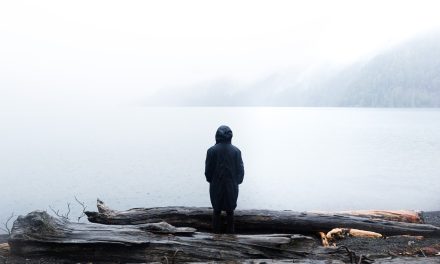If you’re planning a safari adventure in Africa, you’ll want to make sure you have all the right tips and tricks to ensure a smooth experience. From knowing which national parks to visit to understanding the best time of year to go, there are several factors to consider to make the most of your trip. In this article, we will provide you with the essential information and insider knowledge you need to navigate the national parks in Africa like a pro, allowing you to fully immerse yourself in the breathtaking beauty and wildlife of this remarkable continent.
Choosing the Right National Park
When planning a safari in Africa, the first step is to research different national parks. Africa is home to a wide variety of national parks, each offering unique experiences and wildlife sightings. Take the time to explore the different options and consider what interests you the most. Some parks are known for their big game, while others have a focus on bird watching or cultural experiences. Think about what you hope to see and do during your safari and choose a park that aligns with your preferences.
In addition to considering your interests, it’s important to take into account the park’s location and accessibility. Some parks may be closer to major cities and easier to access, while others may require more time and effort to reach. Consider factors such as distance, transportation options, and the infrastructure available in the area. It’s also worth looking into the park’s popularity and visitor numbers to ensure that it aligns with your desire for a more secluded or crowded experience.
Planning Your Safari
Once you have chosen the right national park for your safari adventure, the next step is to plan the logistics of your trip. One important factor to consider is the best time to visit the park. This will depend on various factors such as weather, animal migration patterns, and peak tourist seasons. Research the park’s climate and wildlife calendar to determine when you are most likely to have the best sightings and weather conditions.
Another crucial aspect to plan is the duration of your safari. Decide how many days you would like to spend in the national park to fully explore and experience its offerings. Keep in mind that wildlife sightings can be unpredictable, so it’s advisable to spend at least a few days to increase your chances of encountering a wide range of animals.
Once you have determined the ideal time and duration for your safari, it’s time to make necessary travel arrangements. This includes booking flights, arranging transportation within the country, and organizing accommodations. Consider whether you prefer to plan the trip yourself or opt for a tour operator who can handle all the logistics for you. Whichever option you choose, make sure to book well in advance, especially during peak travel seasons.
Booking Accommodations
When it comes to accommodations during your safari, you have two main options: lodges or camping. Lodges provide a more luxurious and comfortable experience, with amenities such as hot showers, comfortable beds, and delicious meals. On the other hand, camping allows you to immerse yourself in nature and have a more authentic bush experience. Consider your preferences, budget, and desired level of comfort when making this decision.
Regardless of whether you choose lodges or camping, it’s essential to research and book accommodations in advance. Popular national parks can get fully booked, especially during the high season, so it’s advisable to secure your accommodations as early as possible. Look for reputable and recommended lodges or campsites that offer great wildlife viewing opportunities and have positive reviews from previous guests.
When researching accommodations, consider the amenities and facilities available. Some lodges may have swimming pools, on-site restaurants, and spa services, while campsites may offer basic facilities such as shared bathrooms and communal areas. Decide which amenities are important to you and choose accordingly. Additionally, check if the accommodations provide guided safari activities or if you will need to arrange those separately.
Organizing Transportation
Transportation is a crucial aspect of any safari trip. Depending on the national park and your personal preferences, you can choose between different modes of transportation. One popular option is to rent a 4×4 vehicle and self-drive through the park. This offers flexibility and allows you to explore at your own pace. However, it’s important to have experience driving in off-road conditions and to ensure that your vehicle is suitable for the terrain.
If self-driving is not for you, consider hiring a guide or a safari operator. They have extensive knowledge of the park and its wildlife, which enhances your safari experience. They also take care of navigation and can provide insights and information about the park’s biodiversity. This option is especially beneficial for first-time safari-goers who may feel overwhelmed by the vastness and complexity of the national park.
Regardless of whether you choose to self-drive or hire a guide, it’s crucial to ensure your vehicle is in good condition. Have it serviced before your trip and make sure to carry spare tires, tools, and emergency equipment. Familiarize yourself with basic vehicle maintenance in case of any issues during your safari. Safety should always be a priority, so follow all traffic regulations and precautions while driving within the park.
Packing Essentials
Preparing for a safari requires careful consideration of what to pack. The right clothing and footwear are essential for a comfortable and enjoyable experience. Opt for lightweight and breathable materials that provide protection from the sun and insects. Long-sleeved shirts, pants, and hats are recommended to prevent sunburn and insect bites. It’s also advisable to bring a good pair of walking shoes or boots for bushwalks and game drives.
In addition to clothing, make sure to pack necessary personal items and medications. This includes toiletries, sunscreen, insect repellent, and any prescription medications you may need. It’s crucial to carry enough medication for the duration of your trip, as access to medical facilities may be limited in remote areas.
When packing for a safari, don’t forget to bring essential safari gear. This includes binoculars for better wildlife viewing, a camera to capture the incredible moments, and a flashlight for nighttime excursions. It’s also advisable to pack a portable charger or extra batteries to keep your electronic devices powered throughout the trip. Lastly, bring a sturdy backpack or day bag to carry your essentials during daily activities.
Understanding Wildlife and Safety
As you venture into a national park for a safari, it’s important to learn about the wildlife in the park. Understand the behavior, habitat, and feeding patterns of the animals you are likely to encounter. This knowledge not only enhances your safari experience but also ensures your safety and the well-being of the animals. Remember that wildlife is unpredictable, and it’s crucial to maintain a respectful distance and never disturb or approach the animals.
Follow safety guidelines and regulations provided by the national park authorities. These guidelines are in place to protect you, the wildlife, and the environment. Listen to your guide’s instructions and avoid any risky behavior such as standing up in a safari vehicle or leaving designated areas. It’s also important to be aware of the park’s rules regarding waste management and littering. Keep the park pristine by properly disposing of any trash and respecting the natural environment.
Guided Tours and Activities
Participating in guided tours and activities can greatly enhance your safari experience. Book guided game drives to explore the park with knowledgeable experts who can spot wildlife and provide detailed information about the animals and their behaviors. Walking safaris are also popular for a more intimate and immersive experience. These guided walks allow you to learn about the smaller aspects of the bush, such as animal tracks, plants, and insects.
Engaging with local guides and experts can provide valuable insights into the park’s history, culture, and conservation efforts. They have a deep understanding of the local ecosystem and can share their knowledge through storytelling and interpretation. Make an effort to connect with these experts and learn from their experiences. They can help you develop a deeper appreciation for the park and its inhabitants.
Photography and Equipment
Photography is an integral part of any safari experience. To capture the incredible moments and wildlife sightings, it’s important to pack a quality camera and necessary equipment. Invest in a DSLR or mirrorless camera with a telephoto lens for better zoom capabilities. This allows you to capture detailed shots of animals from a distance without disturbing them.
Before your safari, familiarize yourself with wildlife photography techniques. Learn about composition, lighting, and capturing motion to create stunning images. Practice your skills before the trip to ensure you make the most of the photographic opportunities during your safari. Remember to always respect the animals and prioritize their well-being over getting the perfect shot. Maintain a safe distance and avoid using flash photography, as it can startle or disturb the animals.
Respecting Local Culture and Environment
As a responsible traveler, it’s important to familiarize yourself with the local culture and customs of the region you are visiting. Africa is a continent rich in diverse cultures and traditions, and it’s crucial to respect and appreciate these differences. Learn about the local customs, greetings, and appropriate behavior when interacting with the local communities. This helps foster positive relationships and mutual understanding.
In addition to respecting local culture, it’s important to minimize the impact on the environment. Practice responsible tourism by following designated trails, avoiding littering, and respecting wildlife habitats. Make use of reusable water bottles and avoid single-use plastic whenever possible. Support conservation efforts by participating in community-based initiatives or donating to local conservation organizations.
Health and Safety Precautions
Before embarking on your safari adventure, consult a healthcare professional for necessary medical advice. They can recommend any required vaccinations or medications based on your destination and personal health history. Make sure to get vaccinated well in advance, as some vaccines require multiple doses or take time to become effective.
It’s crucial to be prepared for potential health and safety risks while on safari. Carry a first aid kit that includes essentials such as bandages, antiseptic wipes, and any prescription medications you may need. Familiarize yourself with emergency procedures and know how to reach medical assistance in case of an emergency. Lastly, travel insurance is highly recommended to cover any unexpected medical expenses or trip cancellations.
By following these tips and guidelines, you can ensure a smooth and memorable safari experience in Africa’s national parks. From choosing the right park to respecting the environment and wildlife, every aspect of your safari should be well planned and executed. Enjoy the incredible biodiversity, immerse yourself in the beauty of nature, and create lasting memories that will stay with you long after your safari ends.












